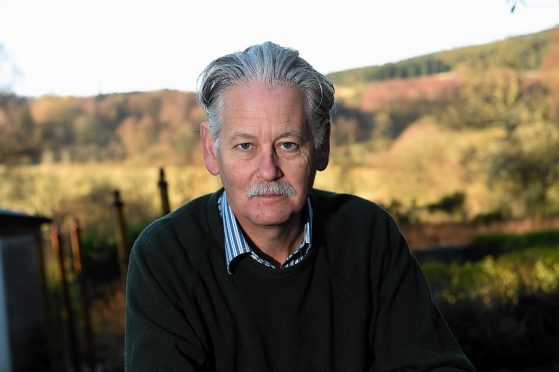An Aberdeenshire councillor, who has been named as the region’s pollinator champion, has said the local authority has a “duty” to support bees and butterflies.
Aberdeenshire Council is currently considering a new national strategy to protect the future of pollinators such as bumblebees and butterflies.
And now, Liberal Democrat councillor, Peter Argyle, who has been chosen to spearhead the authority’s efforts, has underlined how important these insects are to Aberdeenshire’s rural economy.
Cllr Argyle said: “A world without pollinators would be a very different world to the one we have now.
“They are of huge importance to biodiversity, to the economy and to human life generally.”
“Without bees and butterflies and other insects which pollinate wild plants, cultivated plants and food crops, it would be a different world.”
The Aboyne councillor described bumblebees and their fellow pollinating insects as “essential” to the region, saying greater recognition should be given to the species.
A new report, published by Scottish Natural Heritage, has estimated that pollination services in the UK are worth around £430million to the UK annually, and around £43million in Scotland alone.
Cllr Argyle added: “That is huge value to the economy. There may be alternative ways to pollinate, but it will cost an arm and a leg to do it and it’s not as effective.
“We can help get the message across and, in my mind, we have an absolute duty to do everything we possibly can to support our natural environment.”
The council’s infrastructure committee are due to meet later this week to discuss Aberdeenshire’s pollination strategy, and are expected to support the work of Scottish Natural Heritage.
In a report to the committee, chaired by Cllr Argyle under the previous administration, Aberdeenshire Council’s environment planner Judith Cox said: “Pollination is a crucial element of Scotland’s natural environment.
“As well as the intrinsic value of these invertebrate species in their own right, pollinators are essential for healthy natural ecosystems and provide many economic benefits in the agricultural, soft fruit and horticultural sectors.”
As part of the council’s own pollinator strategy, the authority is promoting the importance of bumblebees and working to protect and expand grassland and wildflower meadows.
